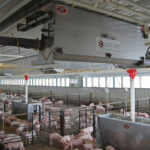Rural Hospital’s Future Is Bright Thanks to Biomass
Biomass, as a sustainable fuel, does more than just help the environment—it saves lives. Many rural hospitals have antiquated boiler systems that burn oil for fuel during the cold winter months. This is not a sustainable heat source, and the...
Rural Hospital’s Future Is Bright Thanks to Biomass
Biomass, as a sustainable fuel, does more than just help the environment—it saves lives. Many rural hospitals have antiquated boiler systems that burn oil for fuel during the cold winter months. This is not a sustainable heat source, and the...Biomass, as a sustainable fuel, does more than just help the environment—it saves lives. Many rural hospitals have antiquated boiler systems that burn oil for fuel during the cold winter months. This is not a sustainable heat source, and the cost is putting many of them in the red. These hospitals often are the only close access to medical care in low income communities.
Piedmont Geriatric State Hospital in Burkeville, Virginia, is using biomass to keep its buildings warm during those long winters. The hospital burns around 3,000 tons of native warm season grasses (NWSG) as biofuel, supplied by FDC Enterprises, from November to May. The hospital saves, on average, more than $1,300 per day during those seven months.
On an energy basis, biomass is roughly one-third the cost of fuel, which quickly adds up. Glenn Farris stated, “For many rural hospitals, being able to save over $200,000 per year is the difference between staying open or closing their doors. It can also be the way to bring that next important lifesaving machine or a new doctor to their facility. It can’t help but make you feel good to know you work for a company and in an industry that can make great things like this happen.”
By using biomass energy, hospitals can save money normally used to heat the building and instead better serve the community. Biomass is a win for rural hospitals, the communities they serve and the environment. To learn more about AGCO Biomass solutions, please visit: http://bit.ly/AGCOBiomass.




